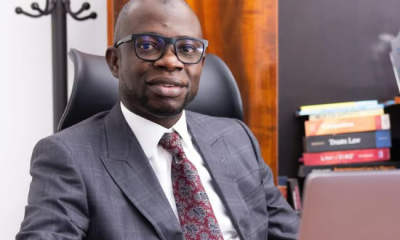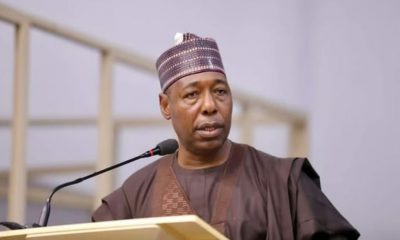Olayinka Ajala, Senior lecturer in Politics and International Relations, Leeds Beckett University has outlined factors that may have been responsible for the July 27 military coup in Niger.
On 28 July, the head of Niger’s presidential guard, General Abdourahamane Tchiani, declared himself head of state after the military seized power.
Beyond warning against any regional and foreign interventions, the military leaders in Niger have given no indications of ways forward.
This coup d’etat will have a significant impact on peace and stability in Niger and the entire Sahel region.
According to Ajala, the coup attempt pointed to deep fissures in the country. It suggested that the military had not fully embraced democracy.
“The current coup plotters have blamed rising insecurity and a lack of economic growth. They stated that the intervention was necessary to avoid “the gradual and inevitable demise” of the country. I believe, however, there are other issues that precipitated the latest coup d’etat. These are: ethnicity; the presence of foreign forces; and the weakness of regional bodies.
READ ALSO: And yet again, another coup
He said despite the increase in foreign forces, especially from the US and France, and military bases in Niger, the leadership has been unable to stop insurgent attacks.
“There are several insurgent groups, such as Al-Qaeda and Islamic State affiliates, as well as Boko Haram operating in the country.
“These attacks have resulted in thousands of deaths and displacements in the last decade. Hundreds of youths in the capital, Niamey, gathered to celebrate the July coup, waving Russian flags and chanting “Wagner”. This suggests that some people in Niger believe the military, supported by Russia and the private military contractor, Wagner group, would do a better job of fighting insurgents.
“In addition to insecurity and economic stagnation, three other issues help explain the recent coup d’etat.
“First, the debate over the ethnicity and legitimacy of Bazoum was an issue during the last election campaign. Bazoum is from Niger’s ethnic Arab minority and has always been labelled as having foreign origins.
“This did not sit well within the military circle, which is predominantly composed of the larger ethnic groups – even though Bazoum got about 56% of the vote and is from the same party as former president Mahamadou Issoufou.
“There is a lot of emphasis on ethnic military composition in the country; understanding this helped Issoufou complete two terms as president. Appointments in the military are made along ethnic lines.
READ ALSO: Niger burns after coup
He also stated that the large number of foreign military troops and bases in the country has not been well received by the military.
“They believe this undermines them. Niger is a key ally of western countries in the fight against insurgency in the region. France’s huge investments in Niger’s mining sector are another reason for its interest in security.
“I suggest the failure of regional organisations such as ECOWAS and the African Union to take a firm stance against military power seizures in Guinea, Burkina Faso and Mali emboldened the Nigerien military.
“ECOWAS leaders have now threatened to use force to restore Bazoum if the coup plotters do not reinstate him.
Ajala explained that the latest coup d’etat has severe consequences for Niger and the entire Sahel region.
“Niger is a strong ally of western nations, especially France, the US and the European Union in fighting insurgency and curbing illegal migration to Europe.
“Efforts to address these issues will be affected. And the new military leaders will want to use these issues as leverage in negotiations and to force acceptance of the new regime.
“Finally, a successful military takeover in Niger would be a major drawback for democracy in the region and Africa as a whole. The military regimes of Guinea, Mali and Burkina Faso already plan to form a “military alliance”, supposedly to combat insecurity.

 Health & Fitness1 week ago
Health & Fitness1 week ago
 Aviation1 week ago
Aviation1 week ago
 Inspirational7 days ago
Inspirational7 days ago
 Featured6 days ago
Featured6 days ago
 Crime6 days ago
Crime6 days ago
 Featured6 days ago
Featured6 days ago
 Business5 days ago
Business5 days ago
 Editorial3 days ago
Editorial3 days ago













